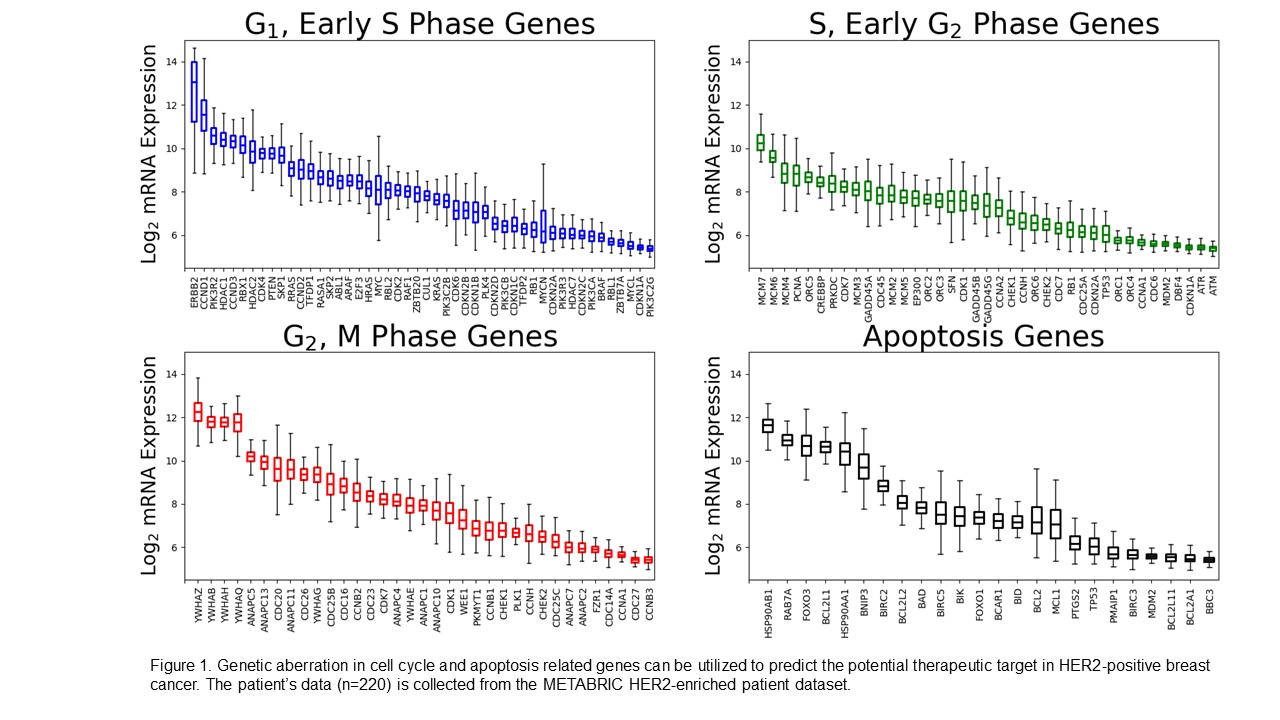(497d) Unveiling the Cell Cycle Mediated Apoptosis Mechanism and Therapeutic Efficacy in Breast Cancer Cells
AIChE Annual Meeting
2020
2020 Virtual AIChE Annual Meeting
Topical Conference: Chemical Engineers in Medicine
Precision Medicine and Cancer
Wednesday, November 18, 2020 - 8:45am to 9:00am
HER2-positive breast cancer accounts for almost 15-20% of the all the breast cancer patients. This subgroup of patient’s tumor is characterized by HER2/ERBB2 gene copy number amplification resulting in HER2 overexpression. HER2 activates RAS-RAF-MAPK and PI3K-AKT mitogenic signaling pathways. This also leads to the deregulation of cell cycle regulatory genes including CCND1, CDK4/6, CCNE1, loss of tumor suppressor gene PTEN and loss of p53 (Figure 1). The molecular and genetic aberrations are heterogeneous and often acquire resistance to the intervened therapy in early stage. It is hypothesized that the mechanism of resistance is regulated by the cell cycle. HER2-positive breast cancer cells were arrested in different phases of the cell cycle Go, G1, S and G2-M using serum deprivation, Trastuzumab or Rapamycin, 5-fluorouracil and Paclitaxel or Doxorubicin, respectively. We also used Trastuzumab functionalized Paclitaxel drug nanorods (PTXNR-TTZ) that arrest cells in G2-M phase and induce apoptosis synergistically on HER2-positive breast cancer cells. Untreated cells were mostly arrested in Go/G1 phase. We investigated the genetic and molecular alterations in cells using Next Generation Sequencing (NGS) technique. Our study includes the discovery of key driver genes and genetic network responsible for cell cycle dependent therapeutic resistance and therapeutic outcomes.


